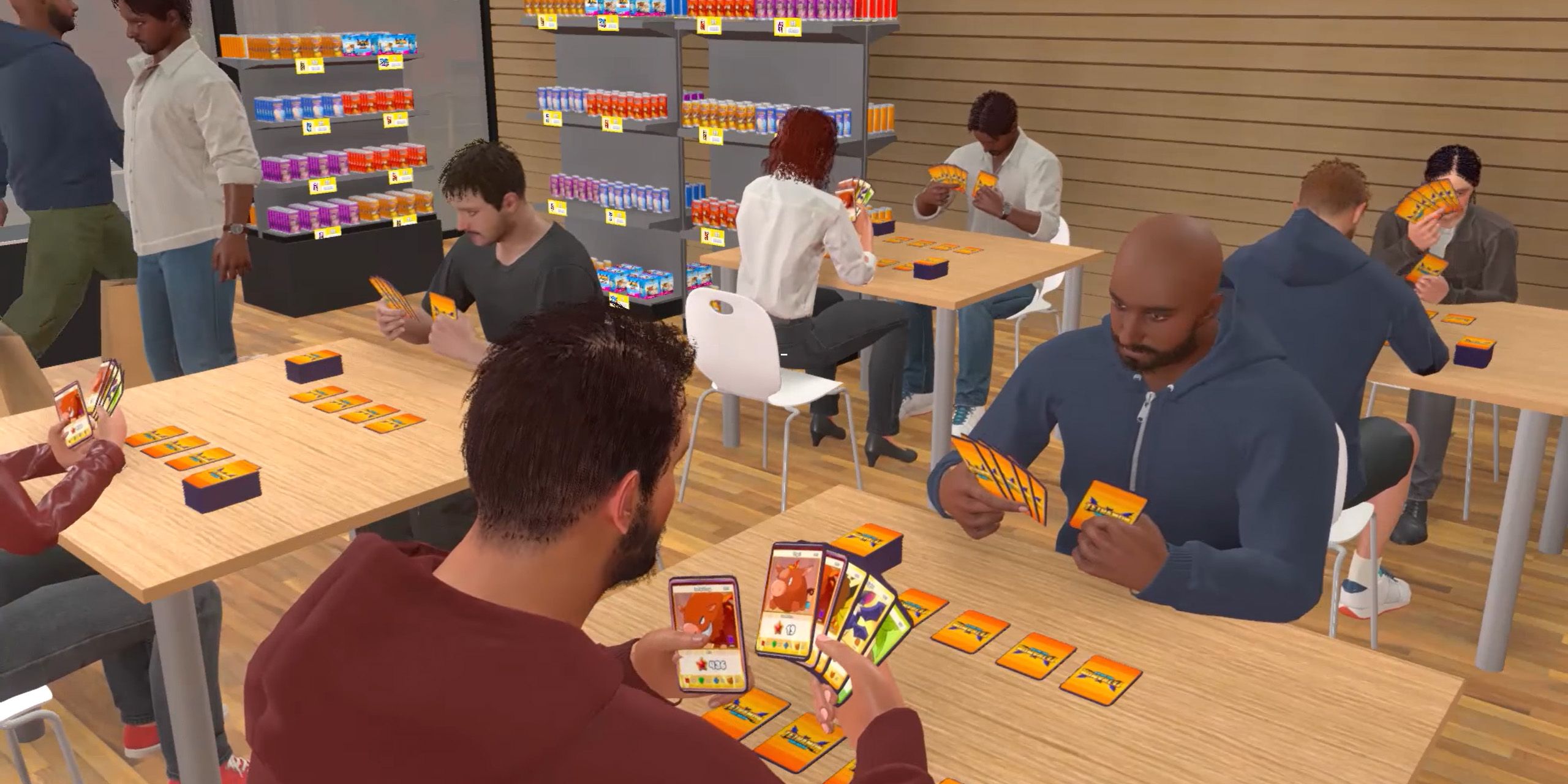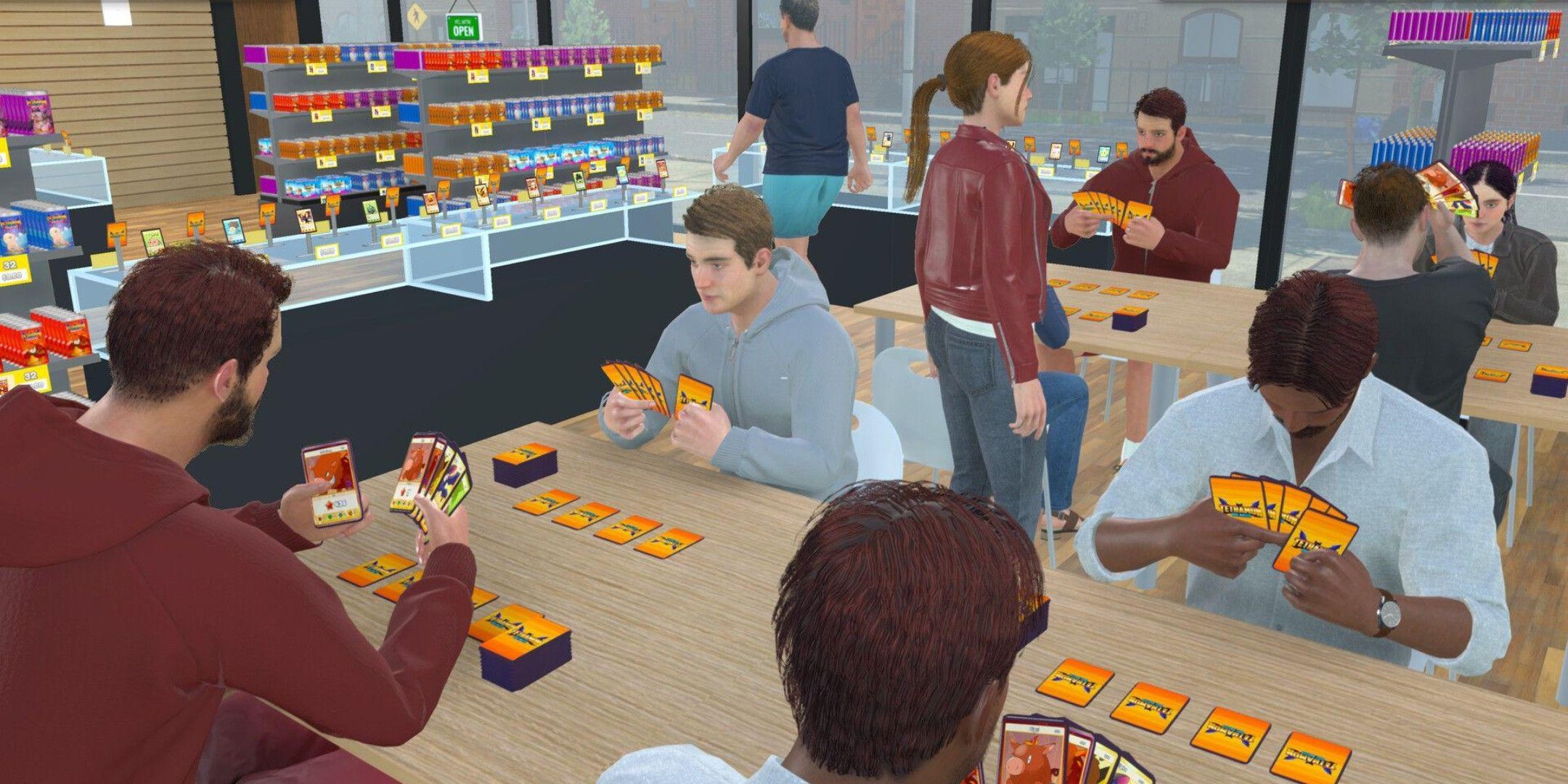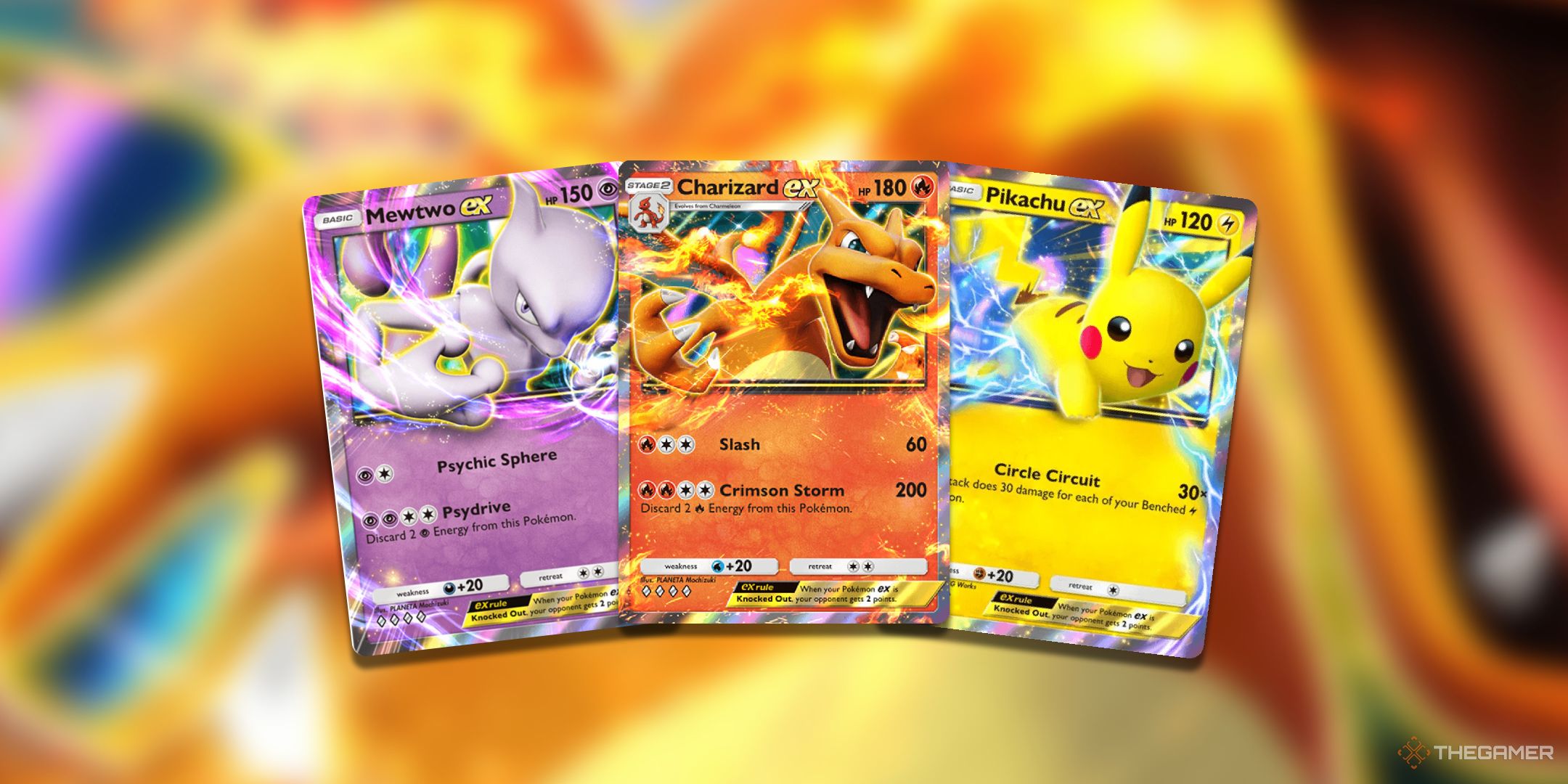Simulation games are big business. I’ve dabbled with plenty in my time, from building my own virtual PC to cleaning Warhammer 40K vehicles with a powerwasher (I even predicted this one before it happened, I was so into PowerWash Simulator). I also enjoyed a recent Steam Next Fest demo of Fast Food Simulator, in which I flipped burgers and served customers at McSledge’s, my own legally distinct scran joint.
These games embrace the mundanity of life. I’ve often dreamed of leaving my incessantly internet-based job in order to live in the woods as a carpenter, following in my grandfather’s footsteps. While I haven’t found Woodworking Simulator yet, these games allow players to follow their inner desires without any risk. You don’t need to buy all the tools, don’t need to quit your job, and don’t need to learn a new trade.
Opening a TCG shop is a popular fantasy at the moment. Many prominent YouTubers in the TCG scene have opened their own card shops, started grading services, or created their own card games themselves. It’s the kind of business prospect that feels more genuine than Lunchly or Prime, but is still mining your loyal fanbase for money in a way that feels a little off to me.
Opening a TCG shop is a difficult business for anyone. You’re becoming an independent business owner and you have all the pitfalls that come with that. You need to manage stock, arrange the shelves, and talk to customers. That’s the fun bit, the bit the simulator will, you know, simulate. But there’s also the less fun bits: the slow days, the worrying about paying your rent, the tax forms. I envy anyone who pays taxes at source.
The double ‘card’ in TCG Card Shop Simulator’s name annoys me in the same way that saying PIN number does. I accept it’s probably for SEO reasons, but it’s still irksome.
Content creators have a leg up. They have legions of supporters who are willing to donate them money every day on stream just for the pleasure of watching their videos, so it tracks that those same supporters would buy the product they love from their favourite creator. If anyone was thinking about starting up a similar independent business, they would need to take into account the fact that they don’t have an existing fanbase.
This is where TCG Card Simulator steps in. If you ever fancied selling your collection or taking the plunge with a brick and mortar store, this is the perfect way to test the waters or live out that dream without risk.
But there’s more to TCG Card Simulator’s popularity than just the core concept. Pokemon has tried to simulate the TCG experience on countless occasions, but none have taken off in the viral manner of this latest Steam hit. Why not?
It’s down to the monetisation. TCG Card Simulator is a little more than a tenner on Steam. In the game, there are no microtransactions. You spend your fictional dollars on fictional card stock, but the developers aren’t trying to desperately extract extra pennies from you at the very turn.
Take the upcoming Pokemon Trading Card Game: Pocket, for example. The microtransactions are so egregious that Eurogamer’s review said that, “you’d think it’s been possessed by a Gimmighoul.” In classic mobile fashion, you can pay to reduce the various timers that the game puts in your face, including those that let you open packs. Spend more money, open more packs.
Lots of players, myself included, want to play Pocket for the collecting side of things, and the pack opening simulator. You can do this for free, of course, but the temptation to pay for ‘one more hit’ will be there, and creates tension with the game’s otherwise wholesome vibe.
TCG Card Simulator has none of that. It has its own TCG with packs you can rip, it simulates customers coming into store for tournaments or pack opening seshes, and none of it costs you a penny more. This is why games like this are successful. If this was just TCG Pack Opening Simulator and cost a tenner with no microtransactions, I wager it would still be a runaway success. People want that dopamine hit, whether it’s opening packs or running the card store of their dreams, and they don’t want to pay extra for the pleasure. Indie simulator games understand that, but Pokemon hasn’t got a clue.

Next
Razer Finally Confirms Its Gengar Headset Is Real, Teases Worldwide Release
Teased three months ago, Razer confirms its Gengar headset is real and available to buy, but there’s a catch.



